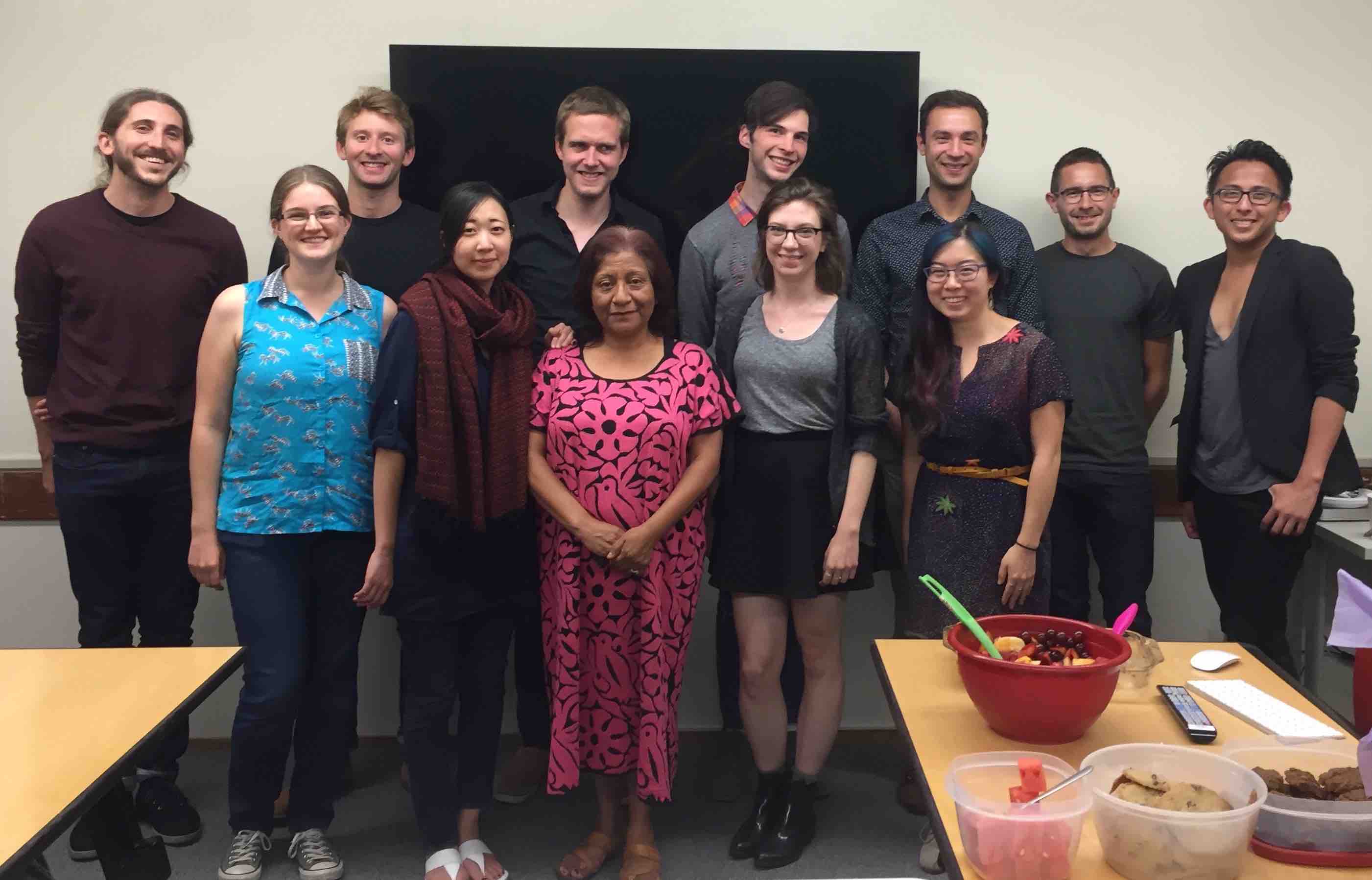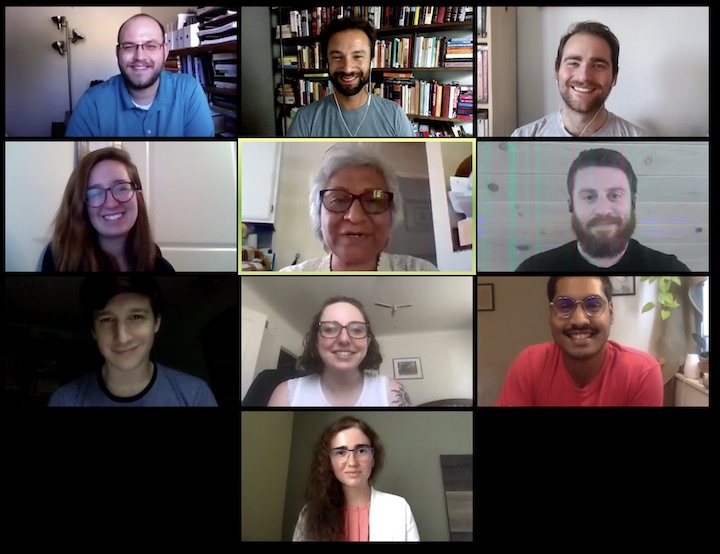History
Our project began in 2016 as a graduate field methods class in the Department of Linguistics at the University of California, Santa Cruz. Ten PhD and MA students worked with Maestra Fe Silva Robles to learn about her variety of Zapotec from the town of Santiago Laxopa in the Sierra Norte of Oaxaca, Mexico. In addition to exploring several components of the language's grammar, they started building the online dictionary. A second field methods class, also taught by Maestra Fe, in the spring of 2020 (held by Zoom) has continued these efforts.
Many of the students in these classes continue to study this Zapotec language, joined by other students and faculty. They are continuing to learn from speakers of Zapotec from Santiago Laxopa, as well as from the nearby towns of San Sebastian Guiloxi and Santa María Yalina, living in California. In addition, a team of students and faculty has visited Santiago Laxopa each summer since 2016.
These intellectual activites are joined with efforts to engage more broadly with the Oaxacan diasporic community in California. Our personal relationships have developed into a long-term collaboration between the lingusitics department and Senderos, a local non-profit organization. This Nido de Lenguas initiative aims to share knowledge about the indigenous languages of Oaxaca with the general public, through Pop-Up events at local cultural festivals, monthly Zapotec language Clases, and one-day immersive language Camps.

2016 graduate field methods class

2020 graduate field methods class
Over the years, the Zapotec Language Project has received financial support from both intramural and extramural sources. It received important seed funding from the Humanities Institute at UC Santa Cruz and the UC Santa Cruz Foundation. Its activities have subsequently been supported by extramural funds from the University of California Humanities Research Institute, California Humanities, and Monterey Peninsula Foundation. Currently, the project is supported by a four-year grant from the National Science Foundation ("Animacy and resumption at the border of cognition and grammar").
The Zapotec Language Project continues a long tradition within the Department of Lingusitics at UC Santa Cruz of engagement with indigenous communities of Mesoamerica. Many faculty and students have long-standing research interests in these languages. There have been dissertations on Mayan (Bennett 2012, Henderson 2011), Mixtec (Eischens 2022, Hedding 2022, Ostrove 2018), and Zapotec (Black 1994, Gomez-Jackson 2023) languages. In recent years, these activities have been coordinated by the Workshop on the Languages of Mesoamerica (WLMA).